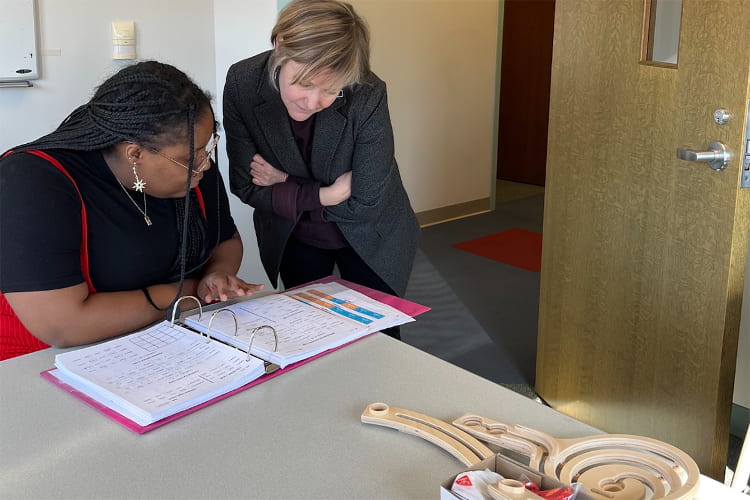When Kayla Harrington first came to WashU, she didn’t imagine herself as a researcher. Three years later, the junior psychology major is a Merle Kling fellow and a part-time researcher in the lab of Lori Markson, PhD, professor of psychological and brain sciences. She’s also in the literature review stage of her own research project on Black girlhood and adultification in the educational setting. Soon she’ll submit her first Institutional Review Board application.
“I never thought I’d be doing research, but I honestly love it,” Harrington said. Participating in research opened her eyes to new career choices. As a first-year student, she’d thought the only option in her field was to become a clinical psychologist. Now she’s thinking about working in academia, education, or even the criminal justice system.
The value of experiences like Harrington’s has spurred a rethinking of the office and support for undergraduate research more broadly. Since work began on the Arts & Sciences Strategic Plan, Dean Feng Sheng Hu, PhD and Erin McGlothlin, PhD, vice dean of undergraduate affairs, have worked together to carefully review all aspects of current undergraduate operations, resulting in a number of changes including the reorganization of the Office of Undergraduate Research (OUR). At the end of last year, the office relaunched with two full-time staff members and its first faculty director, Markson.
“We’ve added expertise and we are focused on expanding and enhancing research opportunities for undergraduates across humanities, social sciences, and natural sciences,” McGlothlin said.
Markson has mentored undergraduate researchers in her labs for years. For her, it’s essential that a diverse group of students, especially those coming from underrepresented backgrounds, can find their way into the world of research. “Some do it very naturally,” she said. “But many students don’t know what opportunities are available or how to locate them.”
It’s important for every student to have access to research opportunities, said Diana Silva José-Edwards, assistant director of the OUR. “The critical thinking, the hands-on experience, the relationship building that one can get through undergraduate research can have such a profound impact on a student’s personal, professional, and intellectual aspirations,” she said.
